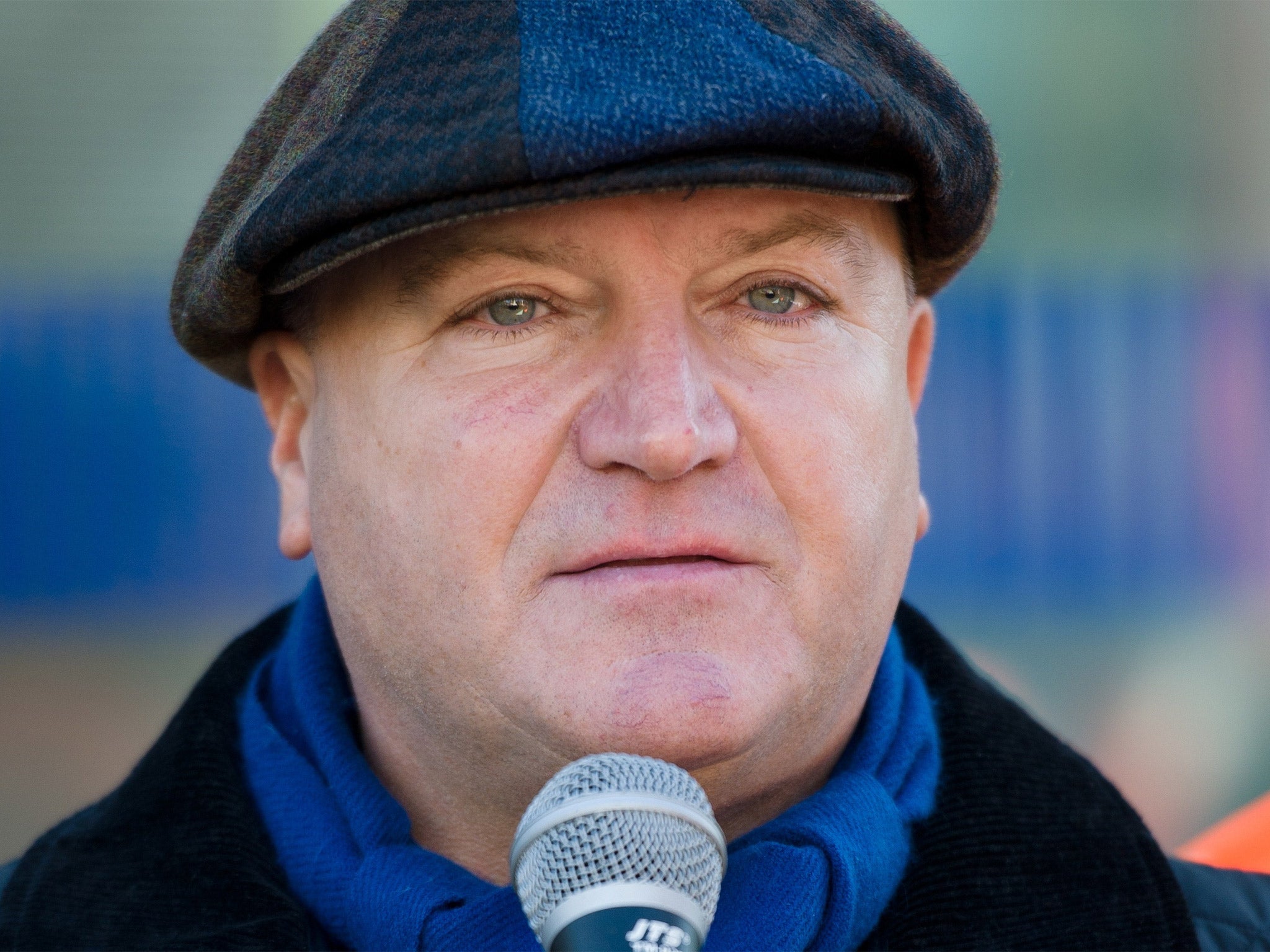Bob Crow death: A geezer with a Millwall scarf, but also a singularly effective unionist

This geezer was the genuine article. A proper working class trade unionist with knobs on.
Bob had a thirst for life, for the labour movement and for lager. Shaven-headed, burly and blunt, he was straight out of a PR textbook: the bit on how not to do it. He once told me that he left the Communist Party because it was “too moderate”. He went on to join Arthur Scargill’s Socialist Labour Party, but in recent years he eschewed membership of any party.
Those who imagine he was on the outer extremities of the Left should be aware that there were people on his union executive who made him look like a Liberal Democrat. When one of the devotees of the ultra-Left proposed a week-long strike to win a half per cent increase in a pay offer, Bob pointed out that the would-be striker would have to work for more than 50 years to gain the week’s wages he would lose by taking industrial action. The call to arms was dropped.
What surprised employers was Bob’s agility at mental arithmetic. As managers always work in percentages, they were often taken aback when he rejected a pay offer before they even put it on paper.
Bob was a card. One Friday night, when a First Great Western service was more than an hour late out of Paddington, Charles Harrison, the chairman of the company’s advisory board, went into the buffet and started serving free drinks to disgruntled customers.
A motorcycle courier arrived at company HQ with a warning letter from Bob advising Harrison not to take over the jobs of RMT members (who were also serving free drinks). Harrison replied that he was simply helping customers to cope with an unavoidable delay.
The next day, another courier turned up, with a letter from Bob and honorary life membership of the RMT.
Intelligent managers always knew that behind his cheeky chappie militancy, there was a wily trade unionist who was always prepared to negotiate. Sir John Armitt, then chief executive of Network Rail, told me that he could always “do business” with him.
Bob routinely wiped the floor with expensively educated Radio Four presenters. He was “sharp” – a word the educated elite sometimes use to describe intelligent working class people.
He played up to his Cockey geezer image as a way of intimidating employers. One HR director who invited Bob to spend a Saturday afternoon in the directors’ box at Leeds United received an invitation to Millwall on the Isle of Dogs – sitting down near the touchline where Bob and his mates roundly abused the ref and the visiting team. All good for the image, of course.
He wasn’t a bad cricketer, and often piled on the runs for the TUC general council against the industrial correspondents ahead of the annual congress.
On one occasion in Brighton he went in to bat against Stefan Stern, a diminutive journalist. With sleeves rolled up and clutching a bat which looked uncannily small in his massive hands, Bob took guard and saw a “Stern special” loop high into the air, taking some time to return to earth.
Bob wound his bat back in readiness to dispatch the ball across the English Channel. It bounced three times. Bob swung at it, missed, and the ball nudged the middle stump. A golden duck. It was the only time I saw Bob blush.
Amid all the anecdotes, it should be remembered that he was one of the most successful union general secretaries of his generation. Under his leadership, the RMT grew from 57,000 members in 2002 to more than 80,000. He will be a hard act to follow.
The writer is former Labour Editor and Transport Editor at 'The Independent'
Join our commenting forum
Join thought-provoking conversations, follow other Independent readers and see their replies
Comments
Bookmark popover
Removed from bookmarks